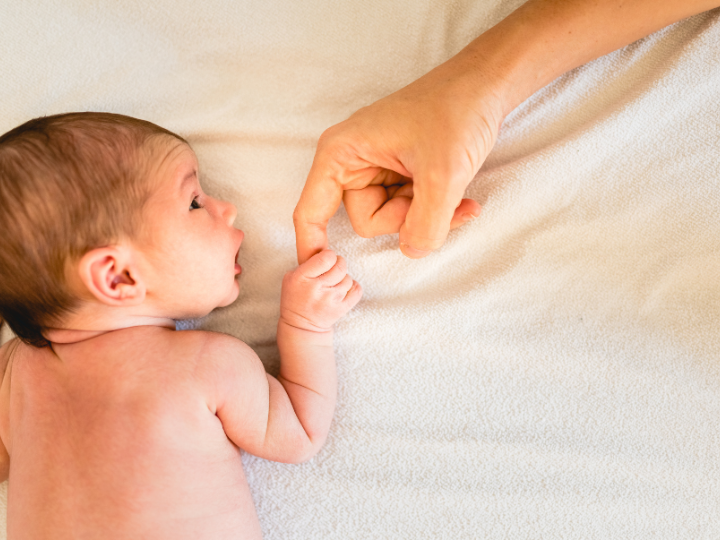Table of Contents
Is IVF dangerous or risky? After how many weeks IVF pregnancy is safe? Let’s find answer to this question.
IVF pregnancy is fertilization of gametes outside the human body. Mature eggs are removed from ovaries and fertilized in a lab by sperm.
Subsequently, an embryo is developed by implanting one or more of the fertilized eggs into the uterus, the organ in which babies develop.
IVF cycle typically last 2 to 3 weeks. When these processes are divided into separate steps, the process can occasionally take longer.
Ensure your IVF pregnancy is safe or not?
IVF pregnancy varies different individuals on basis of age, sex, and genetics.
The first trimester of IVF Pregnancy (week 1 to week 12):
The first 8-10 weeks of an IVF pregnancy are extremely important since significant changes occur inside the uterus during this time. As soon as the small embryo adheres to the uterine wall, the placenta begins to develop and nourishment is obtained from inner wall of uterus.
Difference between X and Y chromosome ?
Important baby organs including the heart, brain, and spine start to grow at this period of time. It’s crucial to understand that there may be additional hazards in the early going for individuals who try naturally or use IVF to conceive.
Why? Occasionally, the mother’s body may not be prepared to support the baby, or the infant may not develop as anticipated. A miscarriage could result from this, in which case the unborn child would not grow and develop.
For this reason, it’s critical to carefully heed the recommendations given by your IVF specialist doctors. During these first 10 weeks of the pregnancy, they may suggest that you take certain hormonal treatment and closely monitor the pregnancy for any unwanted conditions.
During pregnancy, taking care of mother and the unborn child includes getting frequent checks-ups, blood tests, and ultrasounds, healthy nutrition and vitamin supplementation support your baby’s health growth.
Indeed, it is important to avoid substances like alcohol, tobacco, and some medications that may cause risk to the unborn child.


The second trimester of IVF pregnancy (week 12 to week 28):
This trimester is very important for baby to grow. The baby grows most rapidly during this phase of pregnancy, which spans from about the 12th to the 28th week.
You typically start to feel safer at this point and risk of complications get reduced because there is less likelihood of issues occurring.
But keep in mind that every pregnancy is unique and has their own characteristics particularly one that is conceived through IVF, and problems can still arise at any movement is proper care is not taken by mother and her family.
That’s why it’s crucial to continue visiting your doctor on a frequent basis, particularly if you’re doing IVF. They will keep an eye on the mother and the child to make sure everything is proceeding according to the plan.
The third trimester of IVF pregnancy (week 28 to week 40):
This is the most exciting trimester in mother’s life. It’s the time when baby normally arrives, is referred to as the third trimester.
At this point, the prospect, excitement and happiness of meeting your child is becoming increasingly real. It’s crucial that you stay connected with the doctor at this time, pay attention to their advice, and prepare yourself for the birth of your child.
If all goes according to plan and in healthy way, a successful IVF pregnancy might have a duration of 10 to 15 weeks. The doctor will confirm and declare your pregnancy and find scan following giving birth.
Until baby is born, its normal to feel nervous, but most people feel comfortable notifying their friends and family about 12 weeks, the likelihood of pregnancy difficulties and complications is significantly lower because of the fetus’s quick development. You deserve a little rest after receiving such hard therapy.
For all expectant parents, but especially for those who have IVF, safety is the number one priority because risk associated with IVF is much more than normal pregnancy cases.
Studies show that following the 12th week mark, there is a considerable reduction in the likelihood of problems. The likelihood of miscarriage is significantly decreased at this point in the pregnancy, which is thought to be quite stable. To protect your health and the health of your unborn child, it’s crucial to keep in mind that every pregnancy is different and that you speak with your doctor often.
Conclusion on After how many weeks IVF pregnancy is safe?
This article explains what IVF is? Along with it, this article explains risk associated with IVF pregnancy. This article provides explanation to after how many weeks IVF pregnancy is safe. It is important to understand that IVF is not that complicated as much as it is shown. Specialized doctors along with proper care by mother makes this process easy and safe.
FAQ’s
How successful IVF is?
Success rates vary depending on factors such as age, fertility diagnosis, and the quality of the embryos. For women under 35, the success rate per IVF cycle is typically higher, around 40-50%, while it decreases as age increases.
Does IVF guarantee pregnancy?
No, IVF does not guarantee pregnancy. While it increases the change of conception, success rates depend on several factors, including age, health of the eggs and sperm, and overall fertility status.
Are IVF babies healthy?
Studies show that IVF babies are generally as healthy as babies conceived naturally. However, there may be a slightly higher risk of low birth weight or preterm birth, particularly in case of multiple pregnancies.


